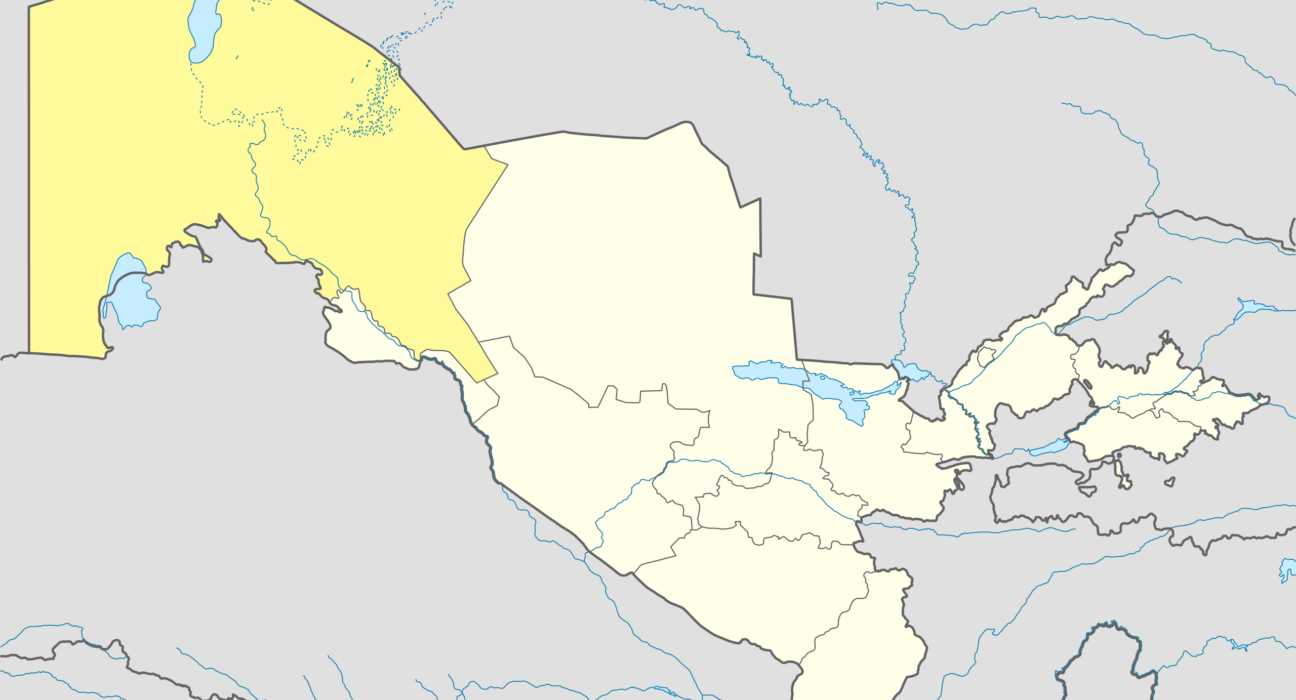The United Nations, in collaboration with the Government of Karakalpakstan, announced the launch of two projects to tackle pressing environmental and health issues in the northwestern region of Uzbekistan.
The projects, supported by the Multi-Partner Human Security Trust Fund for the Aral Sea Region include: the UNICEF project, “Enhancing Climate-Resilient and Safe Water, Sanitation, Hygiene, and Health Services for the Most Affected Communities in Four Districts of Karakalpakstan,” and the joint project by UNDP and FAO, “Building Knowledge and Skills of Local Partners and Communities to Address Environmental Insecurities through Innovative Air, Land, and Water Management Solutions in the Aral Sea Region.”
“The launch of these projects marks a significant milestone in our collective efforts to address the profound environmental and health challenges facing the Aral Sea region. By fostering resilience through innovative solutions in water management, health services, and community empowerment, we are laying the groundwork for a sustainable future in Karakalpakstan,” said the United Nations Resident Coordinator in Uzbekistan, Sabine Machl.
The UNICEF project aims to improve access to safe drinking water and climate-resilient health services for over 15,000 people in the districts of Muynak, Kungrad, Bozatau, and Takhtakupyr. It also seeks to strengthen the monitoring systems of the Ministry of Health of Karakalpakstan and ten mahallas for data-driven climate-resilient WASH interventions, while empowering over 5,100 children and adolescents with knowledge on inclusive climate-resilient WASH services.
“In today’s world, climate-resilient WASH, schools, health care centers have become an imperative. UNICEF is happy that this programme will have a whole-community approach, renovating water treatment facilities and installing water pipeline networks in 10 remote communities,” said Regina Castillo, UNICEF Representative in Uzbekistan. “Investing in children is investing in the future. UNICEF remains committed to collaborating with the Government of Karakalpakistan to ensure that all girls and boys in the region fulfill their rights to health and education, safety and protection,” she added.
The joint UNDP and FAO project focuses on empowering local partners and communities with the knowledge and skills needed to address environmental insecurities. It aims to develop practical solutions in air, land, and water management, ensuring that the communities can adapt to and mitigate the effects of climate change. Moreover, the project will focus on implementing new approaches to water purification, afforestation, and soil stabilization in the Region. These activities have the potential to directly benefit over 376,000 residentsin three northern districts of Muynak, Kungrad, and Takhtakupir particularly women in at-risk communities, with indirect impact extending to 200,000 more people and building on the results of the previous projects.
Akiko Fujii, UNDP Resident Representative in Uzbekistan noted, “Through our collective efforts, we have transformed challenges into opportunities for the communities in the Aral Sea region. By enhancing rural infrastructure, and empowering youth and women with essential skills, improving access to clean water, supporting innovative business ventures and green farming, we are giving people the tools they need to thrive. As we move forward with renewed attention to air, water, land quality and ecosystems, we are committed to building on these achievements, ensuring that progress touches every life in the region.”
“The proposed programme is developed to address multiple insecurity challenges in the Aral Sea region stemming from the ongoing Aral Sea crisis,” said Sherzod Umarov, Assistant FAO Representative in Uzbekistan. “Our approach aligns closely with the concept of human security, with a specific focus on addressing environmental, food, and health insecurities. This alignment is evident through the programme’s core objectives, outcomes, and targeted outputs, ensuring a comprehensive and context-specific strategy. By promoting the integration of the human security concept, this programme aims to enhance overall environmental and health security and improve the well-being of vulnerable groups, with special attention given to women, children, and youth. This approach is crucial for fostering resilience and sustainability in the Aral Sea region.”
